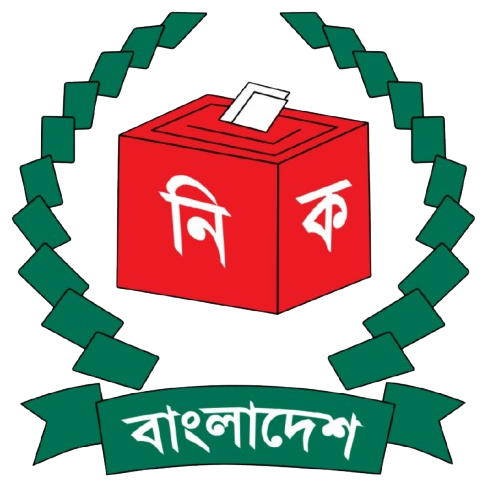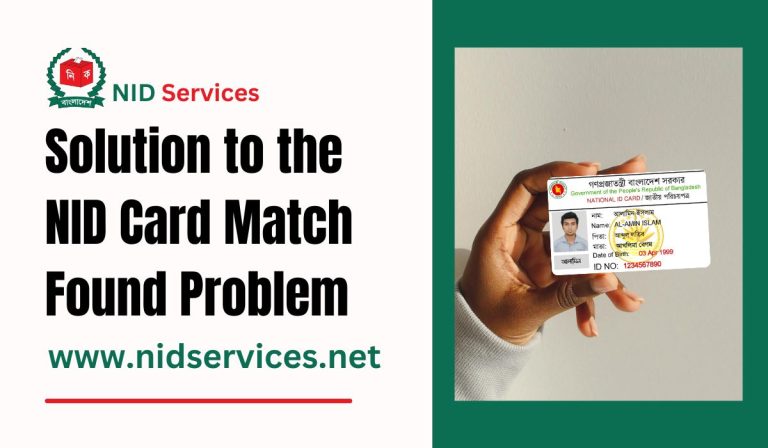Documents Required for NID Application and Voter Registration in 2024-2025

Documents Required for NID Application and Voter Registration in 2024-2025. Becoming a new voter is an important step in establishing your civic identity and exercising your democratic rights. However, the process involves ensuring all necessary documents are in place to apply for your National Identity (NID) card, which serves as a primary form of identification in Bangladesh.
For first-time voters, the requirements can seem overwhelming, but with careful preparation and a clear understanding of the necessary documentation, the process can be straightforward.
In this article, we’ll dive deep into the specific documents required for voter registration in Bangladesh for 2024. From birth certificates to utility bills, we’ll explain each document’s significance, its role in the voter registration process, and additional tips to ensure a smooth application process.
Why Is the NID Card Important?
The National Identity Card (NID) is more than just a voter ID; it’s a critical document for accessing a variety of services in Bangladesh, including banking, employment, and government assistance. Having an NID is also essential for proving your citizenship, and it’s a mandatory document for legal procedures. Therefore, when registering as a new voter, it’s crucial to ensure that all information is accurate and up to date.
Documents Required for NID Application and Voter Registration in 2024-2025
To register as a new voter in 2024, applicants need to submit several key documents to verify their identity, citizenship, and residency status. The following is a detailed breakdown of each required document:
1. Birth Registration Certificate
A digital birth registration certificate is the first and foremost document required for voter registration. The certificate should contain both Bengali and English translations of the applicant’s details. If your birth registration is not in English, you can update it online. Ensure the accuracy of all information on the birth certificate, as discrepancies can lead to delays or rejection of your application.
2. Educational Qualification Certificate
After the birth certificate, an educational qualification certificate, such as an SSC or HSC certificate, is required. This document serves as proof of your academic credentials and must match the details on your birth certificate, particularly your name and date of birth. If discrepancies are found, your application may be delayed. If you do not have an educational certificate, a valid passport or driver’s license may be submitted as an alternative.
3. Parent’s NID Card
Both the father’s and mother’s NID cards are mandatory when applying for your NID. This ensures that the applicant’s parental information is linked to the NID system, establishing family lineage. All details—such as your parents’ names—on their NID cards must match the information on your birth certificate and educational certificate. If a parent is deceased, you will need to provide a death registration certificate.
4. Blood Group Test Report
To complete the NID application, you are required to submit a report from a certified pathology lab stating your blood group. This information is crucial and will be included in your smart NID card. Make sure you get your blood tested from an authorized clinic, and upload a copy of the report online, along with your other application documents.
5. Citizenship Certificate
A citizenship certificate, often referred to as a Chairman’s or Councillor’s certificate, is required to confirm your residency and nationality. This document must be obtained from your local Union Council, Municipality, or City Corporation office. It serves as legal proof that you are a Bangladeshi citizen and reside within a specific jurisdiction.
6. Spouse’s NID Card (If Applicable)
If you are married, a copy of your spouse’s NID card must also be submitted. Additionally, you should provide a copy of your marriage certificate or cabin name as proof of your marital status. This document helps ensure the accuracy of family records within the NID system.
7. Affidavit of Commitment
An affidavit, also known as a voter’s pledge, is a formal declaration that the applicant has never been registered as a voter in any other constituency. This is a legally binding statement, and any false claims can lead to legal consequences. The affidavit should be written on A4 paper and must be submitted along with the application, especially for individuals who have previously been eligible but did not register as voters.
8. Holding Tax Receipt
A copy of the holding tax payment receipt from your local Union Parishad, Municipality, or City Corporation is another required document. The holding tax establishes proof of your residential address. If the tax receipt is in the name of a parent or another family member, this will still be acceptable, as long as it corresponds with the residence provided in your application.
9. Utility Bill Copy
A utility bill, such as an electricity, gas, or water bill, is also necessary to prove your current address. Similar to the holding tax receipt, the bill can be in the name of a family member. This document ensures that your place of residence is valid and within the area where you are registering as a voter.
10. Passport or Driving License (Optional)
While not mandatory, a passport or driving license can serve as supplementary identification, particularly if you lack an educational qualification certificate. These documents provide additional verification of your identity and can expedite the approval process for your NID application.
What Happens If Your Documents Don’t Match?
One of the most common issues faced by applicants is discrepancies between their documents, particularly in names or dates of birth. If your SSC certificate and birth registration contain conflicting information, the details on your educational certificate will take precedence for voter registration. If you do not have any educational qualifications, your birth certificate will serve as the primary document for verifying your age and identity. In cases of discrepancies, make sure to resolve these issues before submitting your application to avoid rejection.
Additional Considerations for Voter Registration in Rohingya-Impacted Areas
In areas with a significant Rohingya population, additional documentation may be required to ensure that the applicant is a Bangladeshi citizen and not a refugee. It’s advisable to consult with the local Upazila Election Office to confirm whether any extra documents are needed for your NID application in these regions.
Legal Consequences of Duplicate Registration
Registering more than once for a National Identity Card is illegal and can lead to severe penalties, including fines and imprisonment. The government of Bangladesh takes voter registration very seriously to maintain the integrity of the electoral system. Therefore, ensure that you only apply for your NID once, and never attempt to register as a voter in multiple constituencies.
Conclusion
Registering as a new voter in Bangladesh is a crucial step in participating in the country’s democratic process, and acquiring an NID card is an essential part of this process. Ensuring that you have all the required documents—such as your birth certificate, educational qualifications, and proof of residence—will make your application process smooth and efficient.






